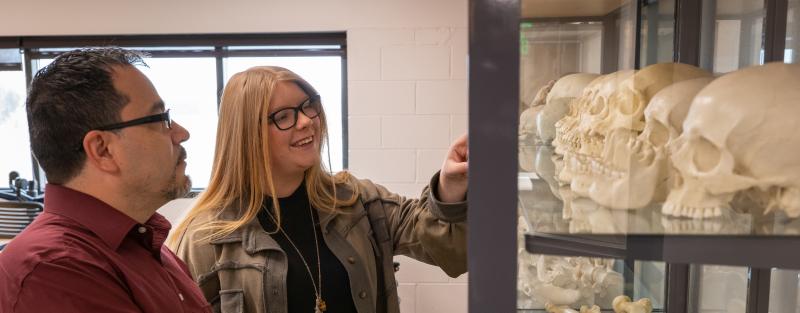Are you fascinated by human cultures and how they operate and interact? Does delving into the human past and present thrill you? Anthropology looks at the big picture of all humans in all times in all places.
Anthropologists study the meaning behind human behaviors, traditions and rituals in a holistic manner. By applying the scientific method and systems thinking to human cultures, anthropologists can examine issues including structural violence and inequities. A well-known sub-discipline, archaeology, looks to the past to examine how people lived. Anthropologists also investigate biological aspects of humans, our extinct ancestors and other primates.
Earning an associate degree in anthropology at Aims puts you on an affordable path to getting your bachelor’s degree. Thanks to a statewide agreement between community colleges and universities, upon completion of your associate degree at Aims you can transfer to any participating four-year public university in Colorado as a junior and earn your bachelor’s degree in anthropology. Taking your general education degree requirements at Aims instead of a four-year institution can save substantial costs.
At Aims, your instructors, Pathway Advisors and coaches at the Aims Transitions Center will work together to help your transfer go smoothly.
Are you excited to study people across time and space? Explore your options for earning an anthropology degree.





